Trading
REALity
A Forex, Futures, Stocks,
and Options Trading Blog
Welcome to the "Trading Reality" Blog.
We've created this blog for individuals that are trading
or looking to trade for a living or on a part-time basis.
There is just too much misinformation out there
on pretty much every topic related to what it really takes
to trade for income or wealth-building. Bringing trading
back to reality..
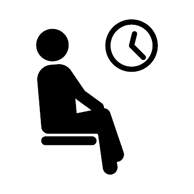
Taking Random Trades
May 24, 2017
More than most, I can completely relate about the boredom
of waiting for a great trade set-up to appear.
People just assume that because I have the discipline to
not over-trade, that I don't get the urge to "find"
trades while waiting.
When great trade setups are not present, I, like most,
will often see mediocre trades as better than they are.
There's always the feeling that you should be trading something.
That somehow you're not doing your job if you're not currently
in a trade.
Often, this will result in forcing what I call "random
trades", trades that are not a part of your trading
plan.
I can't stress enough the fact that the winning percentage
on those trades will be so much lower than planned ones.
If you just completed a string of winning trades by following
your rules, you're even more than likely to give back some
(or a lot) of those profits by taking trades you normally
wouldn't.
Your current winning streak can cause overconfidence in
your trading, the feeling that you can't lose.
You can. And whenever you get that urge to take random
trades (and it will happen), remember that your chances
of winning has just gone down significantly.
Put another way, you're MUCH more likely to lose than win.
That of course is bad for your overall results.
That is bad. Random trades are bad. Got it?

Certainty in Trading
April 26, 2017
I love trades where I'm absolutely sure that it's going
to work in my favor.
The ones where you have no worries whatsoever about any
possibility of a loss.
You know, the ones that exist in your dreams, but don't
exist in reality.
In true trading conditions, there will always be uncertainty,
it's just the nature of this game.
And it could be argued that this is a big part of its allure.
While it would be great to always know the outcome of
a trade in advance, it would also be quite boring (also,
it couldn't happen, because no one would ever lose).
Whenever I see trading marketers' claims about 90%+ success
rate, it immediately triggers warning bells as it's VERY
likely to be a false claim.
So think of uncertainty in trading as a good thing, it's
a challenge and can be exciting.
Forgot about trying to predict the outcome of a trade,
instead, focus your concentration on things you can actually
control.
Like your entry, or things that can increase your odds
of success (entry zones, profit zones, exit strategies,
etc).
Changing what you focus on in your trading will do so much
for you.
Don't waste time worrying or even considering things that
just cause stress and you have no control over.
But, if you do require certainty, you can always buy CD's.
If you look hard enough, you can now find rates of >1%
return per year. How exciting.
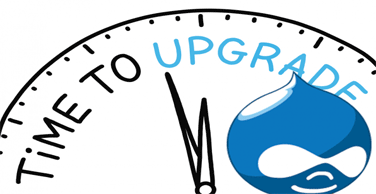
Earn the Upgrade
March 22, 2017
The other day someone with no experience trading told me
he was going to deposit $150,000 into an account and start
trading.
It took me more than an hour to convince him that this
would be a huge mistake.
His main (and only?) argument was that he was financially
in a position where he could risk it.
With no experience trading and a decent amount of money
in an account, the urge to trade WAY bigger than one should
would be hard to overcome.
Think of it this way: If you had a table full of your favorite
foods in front of you, would you eat more or less than if
you had only one small dish?
The answer for most is more, you would indulge (yes, SOME
of you out there could restrain yourself, but not many).
While it's so important to trade according to what you
can afford to lose, it's equally important to trade according
to your skill level.
For the rookie trader above, I suggested he only deposit
$30k (20% of the $150k he wants to trade) into his account.
Then, to institute one rule: When he's able to turn a profit
on the $30k over a set amount of time (i.e. 6 months), THEN
and only then should he consider adding additional funds.
But, what if he can't (which is common for most traders)
turn a profit off the $30k?
Then, he doesn't add more, plain and simple. Why risk more
money when you can't PROVE to yourself that you can profit
off a smaller amount?
Then, when you've learned to earn, it's so nice to have
the extra money there waiting for you once you really understand
how to trade and how to profit.
Like most things in trading, this concept is simple. But,
like most things in life, most won't do this.
Once again, most will be donating to the few.

Taking Action, the Key
to Trading AND Life?
March 15, 2017
While at my desk trading and working, I often listen to
educational and motivating videos.
They really help to push me and re-energize me in my trading
and other parts of my life.
One thing I notice over and over again in so many of these
encouraging videos is this: NOTHING happens unless you take
action. Nothing.
This is so true in trading. You can have the best trading
plan and set-up, but without taking action, the opportunity
will wield no results.
I'd almost say it's the most important part, for all else
depends on it.
We've all done it. You look at a chart and think "Wow,
that's such a great opportunity to enter here. But.."
You're frozen into inaction. You know you're likely right,
but something (often fear of somehow being wrong) holds
you back from placing the order.
Or perhaps you want to become a successful trader, but
haven't taken the time (action) to become one.
This applies to all things in life. How many times have
you told yourself you want to get in shape and eat right?
Maybe, like me, you designed workout programs and even
made diet plans.
The first day comes, time to head to the gym. But, you
find an excuse. Next time. Yep, another excuse.
Due to lack of action, you're getting nowhere. Again.
Trading, starting a business, health, wealth and so much
more. They all began and/or end with the same thing.
Pablo Picasso said it best "Action is the foundational
key to all success."
"Time to head to the gym." -Me.
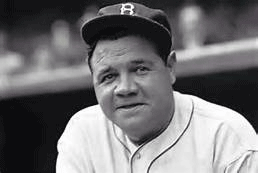
You're Not Trying to Hit
Home Runs. However..
February 22, 2017
If a beginner trader tells me he just completed a day trade
and made $5000 on his $3000 account, there are two things
I know for certain:
- He's risking WAY too much money.
- Without changes, his account will go broke (or worse).
Obviously, a 167% return on any trade is abnormal and you
shouldn't expect it to happen.
However, it sometimes does. But, there's a right way for
it to happen and a wrong way.
Risking a large percentage of one's trading capital (like
the trader above) on any single trade trying to obtain a
huge return is trading suicide.
Don't do it. Don't do it. Never ever do it.
Risk only an acceptable amount of your total capital on
any given trade at all times (the oft quoted 2% max loss
is a great benchmark).
But, staying within your risk parameters and trailing a
winning trade as far as it can go, that can give you "Home
Run" trades.
I always look to exit a large portion of my trades at my
Targets.
But, I'll nearly always allow a percentage of the trade
to go as high as it can, adjusting the Stop as it goes.
Cause you never know how far your profits can run. It's
like hitting a Home Run, but without the risk of striking
out.
Every baseball player ever would love that batting opportunity.

Ignore Outside Opinions
When Analyzing Markets
January 18, 2017
You've done your homework and have a real good reason (according
to YOUR strategy) to buy.
But, before placing the trade, you decide to check the
news. Big mistake.
You find a number of articles and/or news headlines related
to the security you were just about to buy.
And all of them are negative. Very negative. Somehow, all
your research must be wrong, you must have missed something,
right?
So, you decide to skip this trading opportunity and you
will look for another tomorrow. Sure enough, the morning
brings a huge gain in the trade you DIDN'T take.
Don't let this happen to you. If you have a viable trading
strategy, don't let outside opinions in.
Although some may believe that it won't sway them from
their own research, it will, even if you're strong enough
to proceed with the trade anyway.
Self doubt may creep in. Or perhaps the news and opinions
are positive, leading you to double your original position
size.
There's an incredibly simple solution to avoid any of this;
Once you've finished your trading analysis, place the trade.
Don't turn on the news, don't search the Internet. Just
place the trade as planned.
And after it's placed, yes, continue to ignore outside
opinions regarding it.
Trust your trading strategy, trust your own research. Everyone
else has an opinion, but who cares?
Hopefully not you.
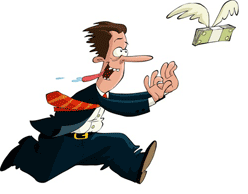
Chasing a Missed Trading
Opportunity
January 11, 2017
So, you missed your entry, and now it's going strongly
in the direction you were hoping. WITHOUT you!
You're certain it'll keep going higher and higher. Perhaps
you should just enter NOW?
I mean, you can just higher the Stop/Loss on it to make
up for the increased risk, right?
Stop! You're on the verge of chasing an entry. There are
many reasons to not do this.
First is risk. If you're buying higher (or selling lower)
than you originally planned, you're increasing the amount
you were originally planning to risk.
Why would you want to risk more money than you originally
planned? If so, why didn't you just do this in the first
place?
It's always better to know your risk limit and stick to
it. Always.
If you think that you can just move your Stop/Loss up to
reduce this, that is even worse.
There was a reason (or there should be) that you picked
a specific spot to place your Stop in the first place.
Moving it up means you've just moved it into the area you
were originally giving the trade room to breathe (likely
inside a Supply or Demand level).
This means there is a much higher likelihood of being taken
out of the trade before it has time to work in your favor.
Increasing risk or reducing the amount of room you're giving
the trade to work WILL take away from your bottom line over
time.
It can easily be prevented and is never necessary. Just
remember chasing trades is bad, Mkay?
Either wait for a pull-back to your original planned entry
or move on the next trade. There's always a next trade.

Setting Trading Goals (Correctly)
January 4, 2017
It's that time of year where many set new goals, with the
hope of future results and self-improvement.
Written goals have and always will be an invaluable method
to help you achieve great things.
However, how you frame your goal can make all the difference.
This is especially the case when setting goals related
to your trading.
For example, setting a goal of making $200 each trading
day is dramatically different than a goal of making "an
average of" $200 per day over a 90 day period. Really?
Really. Let me explain.
If you expect to make $200 per day from your trading, you'll
have many days you don't make your goal. This will lead
to many disappointments.
If you set the goal of making $200 per day "on average"
and after three months, you've made $12,800, you've achieved
your goal ($200 * 60 trading days = $12,000).
With the 1st method, you'll likely have given up after
falling short of your goal many days.
With the 2nd method, you'll have achieved your quarterly
goal and will feel quite motivated to continue.
Other helpful tips when setting trading goals (or any goals):
- Give yourself realistic time-frames for achieving your
goals, don't expect overnight success.
- Goals need to be broken down into small steps, don't
overwhelm yourself.
- Developing consistent actions (routines and new habits)
will overcome willpower every time. Willpower doesn't
last, habits do.
- Success and failure doesn't just happen, it's the end
result of all the little things.
Now, grab a piece of paper and get to work.

Reduce Position Size For
Mediocre Trades?
December 21, 2016
It's a question I get asked occasionally by beginning (and
experienced) traders.
Typically the aspiring trader will ask something similar
to this:
"I've found an OK chart set-up. It's not that great,
but still OK. How much smaller of a position size should
I take on it?"
My reply is along the lines of "Take the dollar amount
you usually use and times it by zero."
"What? That would be $0.00!" they exclaim.
Perfect, that's the amount you should allocate to your
weak and mediocre trades.
Think about it, they're asking me how much they should
invest/trade in set-ups that are not that impressive.
What if I told you I had some paintings to sell you, and
proceeded to tell you that they weren't very good.
How many paintings would you buy?
Don't reduce position size on these trades, simply skip
them entirely.
Only take the best trade set-ups you find. Avoid the rest.
Unless you'd like to buy my paintings (I don't paint, but
I'll gladly make some for you).
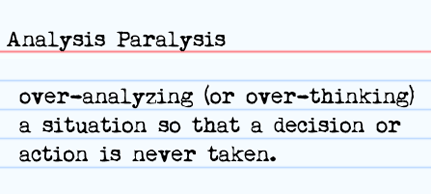
Paralysis By Analysis
December 14, 2016
You're just about to enter the trade, but wait, you see
that it's gaining momentum as it approaches your entry point.
"Oh no, what if it blows thru my entry and takes me
out?"
You cancel your entry, only to see it hit your entry and
quickly move in the direction you were hoping it'd go.
You've just been hit by "paralysis by analysis",
or in other words "over-thinking".
The longer you stare at a trading chart, the longer you'll
look for reasons to take or not take a trade.
More information, more analysis at this point is NOT better!
If you have a trading plan, you should know what you're
looking for. You either see it or you don't.
Trying to look at it "differently" or checking
to see what an indicator you usually ignore says won't help.
Once you have defined a good entry point according to your
trading rules, place the trade.
Don't ponder on it, don't look for excuses. PLACE the TRADE!
It'll either work or it won't, but sitting there paralyzed
by indecision is even worse.

Simplify Your Trading Charts,
Then Do It Again
December 7, 2016
Over and over again, you'll hear advice that you need to
simplify your trading charts.
There's a reason for that, because it's TRUE!
I've met many, many traders in my career, and can't think
of a single successful one that uses messy over-complicated
charts.
Show me a trader that has 15 different indicators and 10
different overlays on their charts, and I can predict their
results (FAIL).
Less is better, less is better.
Think about it. Nearly all indicators are based on lagging
price history.
If so, how could adding yet another based off the same
thing help?
It'll help to confuse you. It'll help to give additional
false trade signals. It'll make your charts unreadable.
What it won't do is improve your trading results. How to
fix it?
Make a list of the indicators you're using. Now, next to
it, list what that indicator is based off of (price/volume/time/etc.).
If you have five that are similar, reduce that number down
to four.
If you have four that are similar, reduce that down to
three.
Keep repeating as necessary.

The Less You "Know"
in Trading, the Better
October 26, 2016
The more you think you "know" what will happen
in any trade, the less you'll be able to see what's really
happening.
You're likely to ignore all evidence to the contrary.
-That stock can't be going down, I "know" it's
going up.
-Wait till Friday, I "know" what the Federal
Reserve is going to do.
When trading, you must eliminate the idea that you "know"
what is going to happen. You don't.
A question I'm constantly asked when someone first learns
I'm a professional trader is "What do you think the
XYZ market is going to do?"
Whether it's a specific stock, about oil, about any market,
my answer is always similar.
"I don't know, nobody does."
Nobody wants to hear that. But, it's true.
My focus and your focus should be on what IS happening
or has happened, never on what our opinions are.
Never confuse knowledge with "knowing". When
you're certain about something you can't know, that is not
knowledge.
But, if we "know" nothing, then what can we do?
Do you know that price moved up today into Supply and dropped
like a rock from there?
THAT I do know. It happened. THAT is important.

Trading While on Vacation
August 24, 2016
Vacations are necessary to recharge your mind and body
from the rigors of trading.
But, when on vacation, should you attempt to trade as usual,
trade on a limited basis, or stop trading entirely?
Stopping trading entirely may be the best choice for many.
No new trades, close open trades, and go ENJOY your well
earned time away.
During the first half of August I traveled to Japan, with
the intent of minimizing my trading.
Since I run a trading
service, I feel it's my duty to continue to give paid
subscribers trades to take.
However, if I had planned to trade as normal, a number
of negative things would've taken place.
I would've had to find time to perform my daily trading
activities, not allowing me to partake in most of the activities
my family and I experienced.
Worse though, I would've returned from a vacation where
I spent a large part of my time working.
Definitely not the way to refresh my mind and body.
My solution was to trade on a longer-term time frame than
normal. Of course, this will give me fewer trades, but that
is part of the goal.
One thing I noticed is I had very little time to trade,
and quite often the Internet access was either poor or non-existent
(i.e. the mountains of Japan).
With the planned reduction, it all worked out great, the
minimal trades I took paid for a large part of the trip.
Even if it hadn't, I strongly believe a vacation should
be a vacation.
Now, I'm back, rejuvenated, and ready to go!
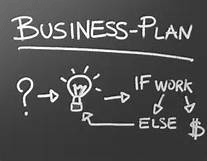
Treat Trading Like Any
Other Business
July 27, 2016
Want to be a great trader? Obviously you do. But, what
does it take to make it?
Well, the same things it takes to succeed in any other
business.
Too many think of trading like a hobby, something "fun"
they can do to make extra money.
But, do hobbies normally make you money? Generally no,
they cost you money.
So, how about treating it like a part-time job?
Usually that means showing up for work, performing your
regular job duties and heading home.
While that could work, but rarely do you put forth your
best efforts while working at a "job".
A much better solution would be treating it like a business.
More specifically, YOUR business.
Yes, you need to be the one making sure all the regular
duties of a business are performed.
This includes planning and strategy, market research, finance
and accounting, taxes, and all the other "things"
associated with running one.
And just like every other business endeavor, the more effort
you put in, the better results you're likely to get out
of it.

3 Things I Re-Learned About
Trading Today
July 20, 2016
1) When you're anticipating a nice trade set-up, but it's
taking forever to develop, you will lose patience.
You will, no matter how much you don't want to. It's human
nature.
When this happens..
You must make a conscious effort to REMAIN patient!
The set-up may or may not materialize, but if you lose
interest you may miss it.
Or worse, you try to trade it by assuming it'll happen.
If so, your results will suffer.
2) When markets are trading in such a tight range
it's super boring to watch, you must pay even more attention
to it than normal.
Getting distracted is easy to do.
But, sooner rather than later it's going to break out one
way or another. When it does, it could move big.
Make sure you're there when it does.
3) Simply wishing something to happen will not make
it happen.
Sorry positive thinking enthusiasts, while I completely
agree that positive thinking can provide many useful benefits
in your life, but making a security move by "hoping"
doesn't work.
If it does, it was a coincidence.
Each and every day we're re-learning so many things that
we already know. Each time we do, we're that much better
for it!
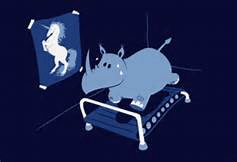
Unrealistic Expectations
June 28, 2016
So often I talk with "Wannabe Traders", which
I would define as those that want the benefits of trading
without any effort, and what they expect from trading is
ridiculous.
They'll ask the question "Is it possible to make $300
per day on average?"
My reply would be "IF you have a big enough account
AND you use correct position-sizing methods AND you know
what you're doing, then yes, it's definitely doable."
Then comes the part where they tell me that they have a
$1000 account, been trading for two weeks, and they're not
quite sure what position-sizing is.
If I then comment that those are super unrealistic expectations,
they get upset and say "my friend is doing it, so I
know it's possible!"
OK, good luck producing a 30% return on a tiny account
each and every day on average.
While you're at it, you should compound your gains. At
the end of the year you'll have more money than is in existence
($1000 starting capital x 30% return per day x 250 trading
days per year = $30,608,220,174,415,542,446,215,357,530,112.00).
Of course, I'll only actually say that first part,"Good
luck!"
You need to have realistic expectations. Making a a lot
trading is a very viable goal, but you must understand that
it takes time, knowledge, and capital.
Patience is a virtue, and also a necessity when trading
for real income or wealth.
Thru hard work and effort, with time and accumulated knowledge,
you will be able to make a fortune thru your trading ventures.
Just don't expect it to happen overnight.

Always Know the Big Picture
June 15, 2016
"Wow, look at that uptrend of oil on the 5 minute
chart, it's going back to $100/barrel for sure!" -say
many Amateur Traders all the time.
Quite often, traders and investors will only focus on one
specific time-frame when deciding whether or not to take
a potential trade.
This can cause so many problems, not the least of which
are quick losses.
Using the initial statement above about oil surging, what
if it was quite obvious on a higher time-frame chart that
there were a ton of sellers just a bit higher in price?
The most likely scenario is oil would pull-back, possibly
even reversing direction to the downside.
This would cause the trade to get stopped out for a loss,
or worse (if you didn't set a stop/loss), huge losses.
I don't care if you're trading on the smallest of time-frames,
you need to know where your trade idea stands in the grand
scheme of things.
Yes, even if trading 1 minute bars, you need to be aware
of what's happening on the Daily chart.
Is it an uptrend/downtrend, where does long-term supply
and demand sit, is there room to run?
These and so many other questions can be answered by simply
paying attention to the big picture.
Once you know this info, THEN you're free to trade off
of any shorter-term time-frame you feel like.
But, by ignoring the big picture and its easily accessible
info, you're guessing.
Can you guess if doing that will increase or decrease your
odds of winning?
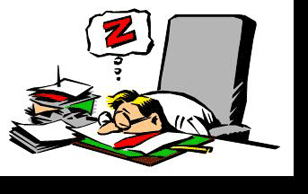
What to Do When the Market
is Doing Nothing
June 8, 2016
It's been days now and the market has barely moved. You've
placed no trades this week and you're getting restless.
What to do?
First and foremost, you should NOT force any trades. The
hardest market to make money in are flat markets.
Forcing trades in the hardest type of market will typically
result in the most likely outcome (losses).
There are many things you can do with this break in action.
Why not use this time to do that review of your past trades
that you've been putting off?
Or, you can update your trading plan (you do have one,
right?), or just take the time to read it over.
It's amazing how just re-reading something can trigger
one of those "ah-hah" moments.
If you've been looking to expand your trading into other
markets, then now's the time to do some research/testing
into these.
You know everything there is to know about trading? Of
course not.
Use this time to learn something you've been curious about,
but didn't have the time while the markets where moving.
The main point is, USE this down-time to improve your trading.
Trading will be (or should be) boring most of the time.
Markets will never stay flat forever, they will move again.
Always. With downtime, you should now be extra prepared
for when it does.
Just sitting there doing nothing waiting for the market
to move again accomplishes, well, nothing..
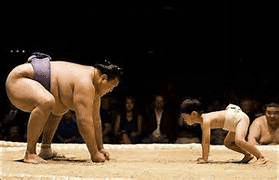
Markets Are Never Wrong
- Opinions Often Are
May 24, 2016
Quite often I'll see an ad proclaiming that you can "Beat
the Market". This is just not true, the market doesn't
lose.
Ever. You can beat some arbitrary market average or benchmark,
but you're never going to beat the market.
You can achieve a higher return than the overall market
returns, but that is not beating the market.
If it wants to go up, it will. If it wants to be choppy
and flat, it will. Your job is not to beat it, it's to listen
to it and react to what it wants to do.
Suppose you have an opinion that the Australian Dollar
is due for a large uptrend. Where did this opinion come
from?
If it is based on what the market is doing or has done,
then it's possible.
But, if it is based on some news or information that you
heard and no one else knows (trust me, this will never happen),
then you need to rid yourself of this opinion.
All economic data and news up until any moment in time
is already part of the market. Yes, it can move quickly
with new releases, but YOU don't know how far and long that
will last.
Pay attention to how it's moving right now. Look for areas
where it's likely to go and then decide if you want to risk
some money on your observation.
Then place the trade or don't. But, never have the opinion
that you can beat what the market will do.
That's a battle you're going to lose every time.
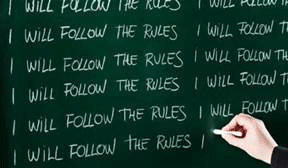
Time to Break Your Rules
May 12, 2016
When is it OK to break your trading rules?
The market has been behaving erratically, moving up and
down in big spurts.
You're certain that if you adjust your Trailing Stop/Loss
Order up, you'll be taken out of the trade for only a small
gain.
You're going to miss the next big move up and huge profits.
But, according to your rules, you need to adjust your Stop/Loss.
Not this time, you KNOW it'll go higher!
Every trader with some history has experienced this. Here
is what often happens..
The market starts moving up. You were right, right?
Then all of a sudden it changes direction, passing thru
where your Trailing Stop/Loss was supposed to be.
And then it continues dropping, fast, shooting thru where
your original (non-adjusted) Stop/Loss is, handing you a
nice sized loss.
Congrats, you just turned a small gain into a big loss.
So, when is it OK to break your trading rules?
When you have a "hunch"? A gut feeling?
How about NEVER.
Past Trading Blog
Posts
- Trading
What You Don't Know - Apr
6, 2016
- Which
Trading Indicator is the Best?
- Mar 29, 2016
- The
Key to Trading Market Moving News
- Mar 16, 2016
- How
to Trade Less and Make More
- Mar 7, 2016
- Using
the Force to Trade - Feb 25,
2016
- Trading
According to Your Personality
- Feb 15, 2016
- The
Foreign Exchange Market -
Feb 3, 2016
- Trading
is NOT Easy Money - Jan 25,
2016
- A
List of What is Absolutely Necessary to Start Trading
- Jan 13, 2016
- 2016
is Here! Time For All Things New -
Jan 1, 2016
|

